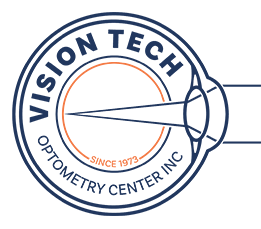
Hard to fit contact lenses are specifically designed for individuals with certain eye conditions that make it challenging to find a comfortable and effective contact lens option. These lenses are different from standard contact lenses because they are tailored to address the unique needs of these conditions.
Common Eye Conditions that Require Hard to Fit Contact Lenses
Certain eye conditions can make it challenging to fit contact lenses properly, requiring specialized lenses and expertise. Some common eye conditions that may necessitate hard-to-fit contact lenses include:
- Keratoconus: This condition involves the thinning and bulging of the cornea, leading to irregular astigmatism. Specially designed contact lenses, such as scleral lenses or custom soft lenses, are often required to provide a comfortable and stable fit.
- Irregular Astigmatism: Conditions such as post-corneal transplant or corneal scarring can result in irregular astigmatism, which may require custom-designed contact lenses to achieve optimal vision correction.
- Dry Eye Syndrome: Individuals with dry eye syndrome may have difficulty tolerating standard contact lenses due to discomfort and fluctuating vision. Specialty contact lenses with enhanced moisture retention and improved surface properties can be beneficial for these patients.
- Post-Refractive Surgery: Patients who have undergone refractive surgeries such as LASIK or PRK may experience irregular corneal shapes, making it necessary to utilize specialized contact lenses for vision correction.
- Corneal Dystrophies: Certain inherited corneal dystrophies, such as map-dot-fingerprint dystrophy or Fuchs' dystrophy, may require customized contact lenses to address irregularities in the corneal surface.
For individuals with these eye conditions, seeking care from an optometrist with expertise in specialty contact lens fittings is crucial. Your optometrist can assess the specific needs of each patient and recommend the most right contact lens options to optimize vision, comfort, and overall eye health.
What are Wave Contact Lenses?
One type of hard to fit contact lens that has gained popularity in recent years is wave contact lenses. These lenses utilize advanced wavefront technology to provide a customized fit and improved vision quality. Wave contact lenses are designed to correct higher-order aberrations, which are optical imperfections that can affect visual clarity. By addressing these aberrations, wave contact lenses can provide sharper and more precise vision.
Wave contact lenses work by measuring the unique imperfections in your eyes using a wavefront analyzer. This data is then used to create a customized lens that corrects these imperfections, resulting in improved vision quality. These lenses can be especially beneficial for individuals with astigmatism, as they can provide clearer and sharper vision compared to traditional contact lenses.
Getting Fitted with Vision Tech Optometry Center
If you are in need of hard to fit contact lenses, Vision Tech Optometry Center is here to help. Our experienced team of optometrists specializes in fitting these types of lenses and can provide personalized solutions for your unique vision needs. We utilize state-of-the-art technology to ensure a precise fit and optimal visual acuity.
At Vision Tech Optometry Center, we understand the challenges that come with finding the right contact lenses for hard to fit prescriptions. We are committed to providing our patients with the highest level of care and expertise to ensure they find the best solution for their vision needs.
Contact us today to schedule an eye exam and take the first step towards clear and comfortable vision with the right contact lenses, visit Vision Tech Optometry Center at our office in Waynesboro, Virginia. Please call (540) 215-8361 to schedule a consultation today.






